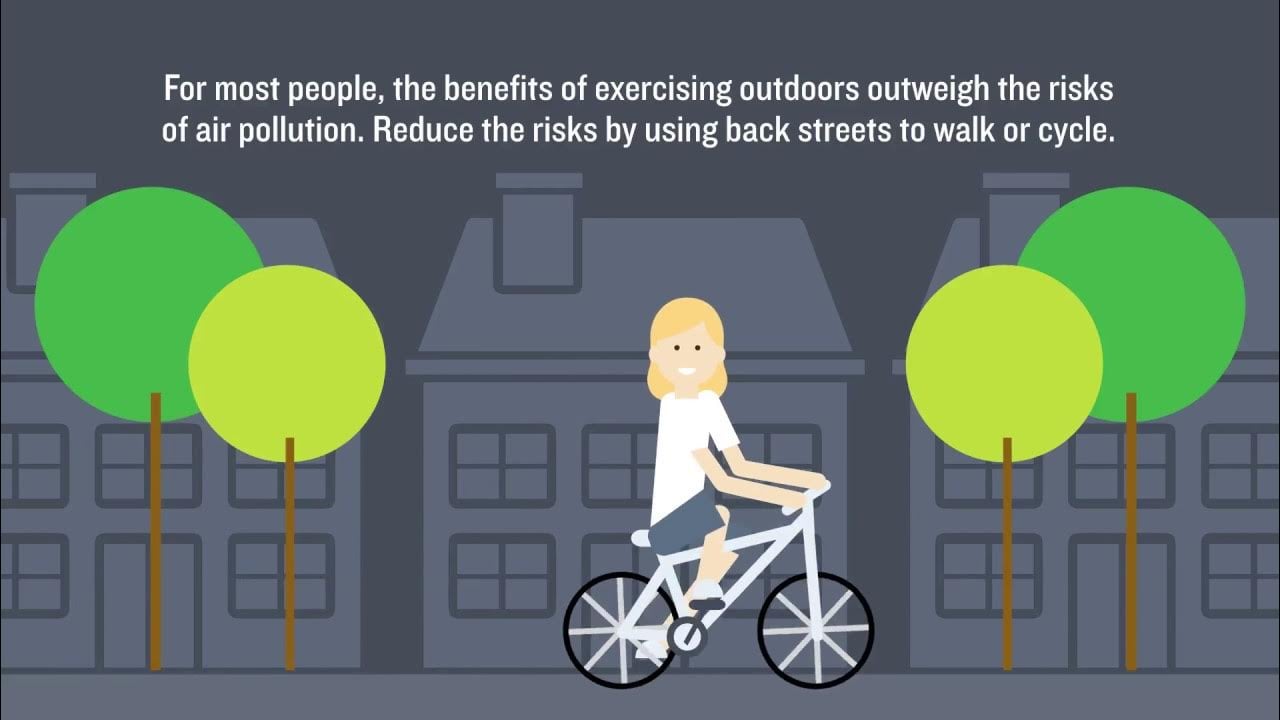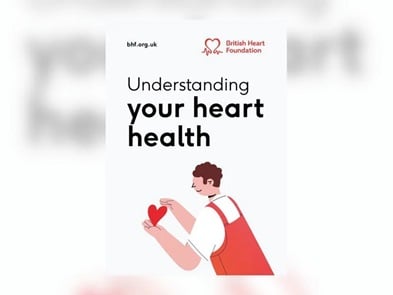
Air pollution
Air pollution is harmful to your heart and circulatory system. Wherever you live, there are simple steps you can take to stay as healthy as possible.
What is air pollution?
Air pollution is the name given to gases or particles in the air that can harm your health if you breathe them in. You may be more at risk if you have a heart or circulatory condition. Air pollution most commonly comes from cars and vehicles, but can also come from things like burning wood, farming and factory fumes.
Indoor air pollution can also be very harmful, especially if your home lacks good air flow. Things that can pollute your air at home include:
- burning candles
- burning firewood
- smoking indoors
- keeping your windows closed during cooking.
Air pollution and heart and circulatory diseases
When you breathe in poor quality air, particles can travel deep into your bloodstream through your lungs, and to your heart. This can increase your risk of developing heart and circulatory diseases.

Air pollutants can:
1. Damage your blood vessels by making them narrower and harder.
This can:
- make it more difficult for your blood to flow freely
- make your blood more likely to clot
- increase your blood pressure because your heart is pumping faster to move the blood that cannot flow properly
- increase the strain on your heart muscle by working harder than it should.
2. Affect your heart’s electrical system which controls your heartbeat.
This can cause abnormal heart rhythms.
3. Potentially cause small changes to the structure of your heart.
This can be similar to changes seen in the early stages of heart failure.
For people with existing heart and circulatory conditions, the damage can increase their risk of a heart attack or stroke.
- Air pollution is responsible for more than 6 million deaths each year worldwide
Amount of pollution in the air and risk to my health
Air pollution levels rise and fall depending on how built up an area is, the time of day and the weather. The advice about how to reduce your risk of developing health problems changes depending on the level of air pollution.
The UK government has a daily air quality index which talks about air pollution levels and provides health advice.
Check the air pollution levels near you
It is important to regularly check the air pollution level for your area. If the level is high or very high, it can increase your risk of feeling unwell and developing health problems.
To check the level of air pollution near you, you can:
- Visit the UK government’s Defra Air Website to see a daily pollution forecast.
- Check your local air quality website for regional updates:
- Check weather apps if you have a mobile phone or another device – most weather apps show a daily pollution forecast.
Reduce the amount of air pollution you breathe in
There are lots of easy things you can do around your routine to reduce your exposure to air pollution:
- Whenever you can, walk or cycle instead of driving a vehicle or using public transport. This is because air quality can be poorer in vehicles.
- When you’re walking or cycling, try to find routes away from busy roads or use cycling paths.
- If you're in areas that could have poorer air quality (like cities and towns), try to reduce the amount of time you spend outside during ‘rush hour’ (the busiest times of day to travel). You could try getting to work or the school drop-off a little earlier and avoid the traffic.
- Some research has suggested that eating a balanced diet with plenty of fruit and vegetables could help to protect you from the negative impacts of air pollution.
Some people choose to wear a face mask but there is little evidence to say if they can protect you from air pollution.
Improve the air quality in your home
Poor air quality in your home can be harmful to your health, like polluted air outside. And many of us spend a lot of our time indoors. But there are simple things you can do to improve the air quality in your home and reduce the impact on your health:
- Use solid or liquid cleaning products rather than sprayable ones.
- If you use candles , blow the flame near a window and leave it open for a few minutes.
- If you can, cook and heat your home with electric or gas instead of burning wood or coal.
- Open your windows a few times a day to refresh the air in your rooms, especially when you’re cooking or showering.
- Clean your floors regularly to avoid dust and allergens building up and going into the air.
- Use extractor fans in your kitchen and bathroom, fix any leaks or water damage, and keep your home above 19c in the colder months if possible. These things can all help to prevent water condensation which can cause mould and bad bacteria building up in the air.
- Do not allow smoking in your home. When you smoke indoors, it stays in the air. Toxins from second-hand smoke can harm the health of everyone you live with. If you smoke, taking steps to quit is the best thing you can do for your health.
Exercise outside in polluted air
For most people, the benefits of being physically active outweigh the risks of breathing in polluted air
When you exercise, your heart works harder to pump more blood high in oxygen around your body. This means you will breathe in more air. If you’re exercising outside, you might want to check the air pollution level in your area first:
- If the air pollution level is low, you can carry on with your normal activities, even if you have a heart or circulatory condition.
- If the air pollution level is moderate, high or very high, try to exercise indoors if you can.
Exercise is very good for your heart and circulatory system. It can also boost your mood and help you sleep better, and it can be fun too.
Indoor and outdoor exercise ideas
Adults in the UK are recommended to get around two and a half hours of exercise a week. As long as you’re doing something to get you out of breath, it can be anything. Indoors or outdoors, we have easy exercises for very age and ability. From exercises you can do from a chair to at-home yoga and our 10-minute workout.

You can trust our health information
We've followed an eight-step process to make sure this content is reliable, accurate and trustworthy.
Learn how we make our health content.




